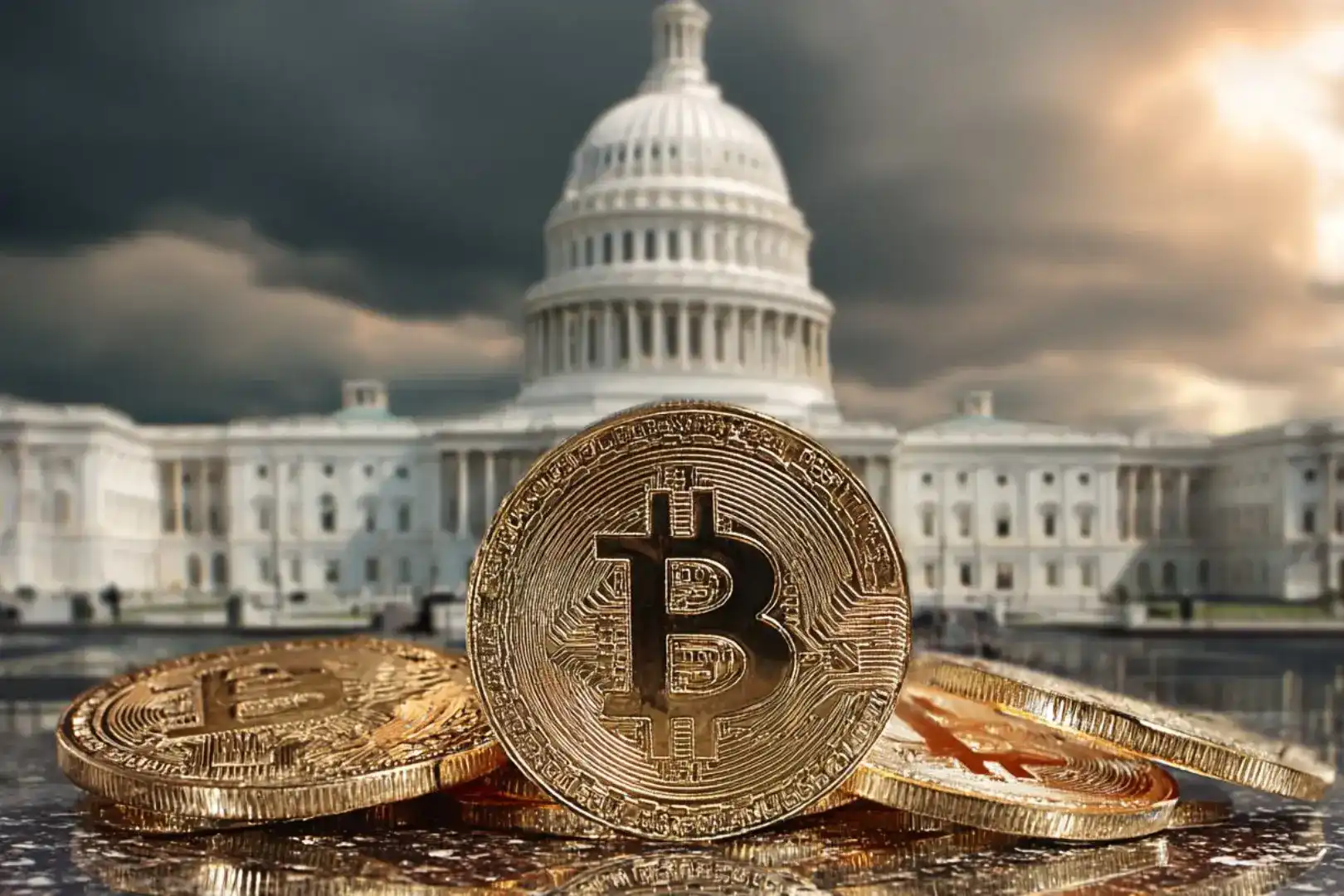BlackRock CEO sees rocky 2025, but bets on long-term tech boom amid escalating trade tensions
Key Takeaways
- BlackRock CEO Larry Fink anticipates market volatility and elevated inflation in 2025 due to trade tensions.
- Fink remains optimistic about long-term growth through technology transformation and AI advancements.
BlackRock CEO Larry Fink expects market volatility and elevated inflation in 2025 but remains bullish about long-term growth opportunities, projecting a “big economic boom” driven by advancements in science and technology.
Speaking today at the RBC Capital Markets Global Financial Institutions Conference, Fink said that this year would be a “rocky” year as markets adjust to trade tensions and policy shifts. He noted that the “next six months” will be marked by increased market volatility.
“In the next six months, I think we’re going to have a lot of volatility and volatility is creeping up quite considerably,” he said.
Yet, Fink anticipates the country will overcome the current social and economic challenges.
“The world’s fine. I mean, a lot of noise. We’ll get beyond — we’ll get by this,” Fink said.
“All of that is going to be just a reorientation. And ultimately, we’ve — we find ways of fixing it. But in the short run, we’re going to have elevated inflation,” he said.
Fink urged investors to buy during the dips, emphasizing his confidence in the enduring strength of the US capital markets.
“For long-term investors, if there’s a big dip, good, good time to buy and I truly believe that. I believe we’re getting set up for a big economic boom,” Fink said, anticipating the boom will largely be driven by new technologies and science.
Addressing the growing anxiety surrounding tariffs and potential deportations, Fink said they could cause immediate economic disruptions they could cause. However, despite the current climate of trade uncertainty, he stays optimistic about the possibility of a positive outcome, suggesting a potential trade agreement between the US and China.
“We expect in the short run volatility, we expect elevated inflation, moderation of the economy in the short run. But over the course of three quarters, four quarters, I think we’re going to be resuming a pretty good trajectory,” he noted.
AI and robotics poised to unleash deflationary wave
Discussing AI, Fink highlighted the potential of the technology to drive innovation, efficiency, and ultimately, deflation.
“The Generative AI is going to transform the science and all the sciences so rapidly,” he said.
The CEO pointed out that AI implementation is currently expensive, limiting its accessibility to large corporations. However, he expressed optimism that the cost of AI models will decrease, allowing for wider adoption and “democratization” of the technology.
Fink believes that the US technology sector, driven by AI, will be a major driver of stock market growth and investment opportunities over the next five years.
Fink also noted the rapid evolution of robotics, where AI and visual technology are enabling robots to perform increasingly complex tasks. He contrasted older, code-driven robots with new AI-powered machines capable of delicate and precise actions.
“The ability to overlay AI with robotics with visual technology is going to be transformational,” Fink said. “And that’s why when you think about so many functions and so many things, it will be ultimately very deflationary.”
Disclaimer: The content of this article solely reflects the author's opinion and does not represent the platform in any capacity. This article is not intended to serve as a reference for making investment decisions.
You may also like
Three things that must happen for Bitcoin to avoid bear market
A $500 billion valuation giant is emerging
With a valuation comparable to OpenAI and surpassing SpaceX and ByteDance, Tether has attracted significant attention.

Prediction markets meet Tinder: Can you place bets on Warden's new product by simply swiping left or right?
No need for chart analysis, macro research, or even inputting the amount of funds.

Why does bitcoin only rise when the U.S. government reopens?
The US government shutdown has entered its 36th day, leading to a decline in global financial markets. The shutdown has prevented funds from being released from the Treasury General Account (TGA), draining market liquidity and triggering a liquidity crisis. Interbank lending rates have soared, while default rates on commercial real estate and auto loans have risen, increasing systemic risk. The market is divided over future trends: pessimists believe the liquidity shock will persist, while optimists expect a liquidity release after the shutdown ends. Summary generated by Mars AI. The accuracy and completeness of this summary are still being improved as the Mars AI model is updated.
